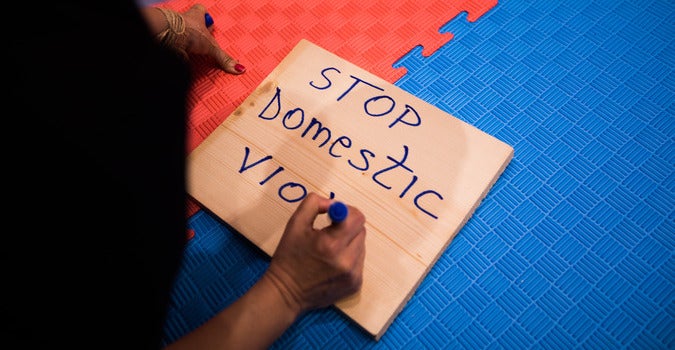
Ending violence against women and girls

In recent years, Albania has made progress in improving its legal, policy and institutional frameworks to end domestic violence and violence against women (VAW). However, the prevalence of violence against women remains high with one in three women reporting having experienced violence.
Violence against women has deep roots in the patriarchal traditions, including strict gender identities and roles and patriarchal authority. Despite some increase in recent years, the number of domestic violence cases reported to authorities continues to be low, especially among the marginalized communities.
The Government has set up services and coordinated efforts to respond to reported cases of violence against women in all municipalities, though adequate financing and close monitoring are needed to ensure their full effectiveness.
In the upcoming years, Albania has to take a series of actions to meet requirements of ratified international conventions, including the Convention on the Elimination of all forms of Discrimination against Women (CEDAW) and the Council of Europe Convention on Preventing and Combating Violence against Women and Domestic Violence (Istanbul Convention).
Our solutions
UN Women in Albania is working closely with all actors in society to combat all forms of violence against women, including sexual violence and harassment. One of our main priorities is to ensure that national policies and legislation are improved and implemented in compliance with Albania’s international human rights commitments and obligations.
UN Women regularly undertakes awareness-raising and outreach initiatives all around the country, to challenge harmful gender stereotypes and discrimination. These initiatives are implemented in close collaboration with civil society organizations, media and private sector partners.
In addition, UN Women in Albania supports the provision of specialized services essential to women and girls subjected to violence, to guarantee their protection and rehabilitation. In doing so, we reach out to some of the most disadvantaged groups of women, including Roma and Egyptian women, women with disabilities, or women from the LGBTI community. The focus is to advocate for the removal of barriers that these women face in accessing available services.